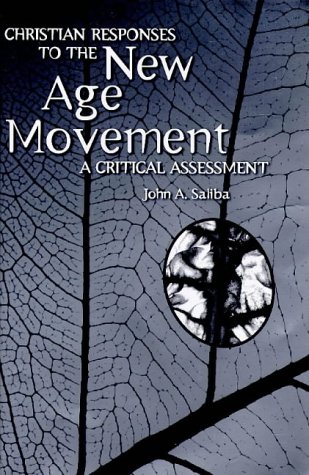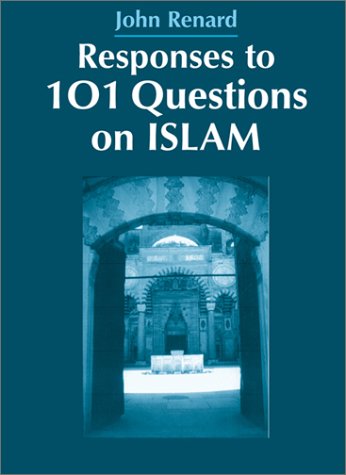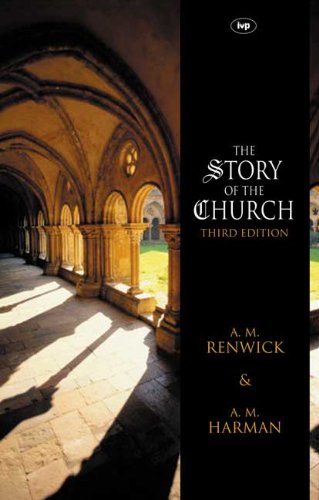The Powers That Be—Theology for a New Millennium
Written by Walter Wink Reviewed By David SmithThis volume is described by its author as a digest of his 1992 book Engaging the Powers and as incorporating some of the material from the two earlier volumes in the trilogy he devoted to the study of spiritual powers. It is, in other words, an attempt to abbreviate and popularise the approach to this subject for which Walter Wink has become well known in recent years.
There is a great deal to admire in this work. Wink has revived interest in an aspect of the teaching of the NT that, partly in reaction to its use by extreme charismatics, had been marginalised and neglected for far too long. Moreover, he has done this in such a way as to bridge the gap between the ancient world of the apostolic writers and the contemporary situation at the dawn of the third millennium. This is theology done with a recognition of the importance of the two horizons and the author is consistently good at applying biblical insights to modern realities. For example, I read the section in this book on what Wink calls the ‘Myth of Redemptive Violence’ on the morning that the front page of the Guardian was filled with a picture of the results of the NATO bombing of Belgrade. This was accompanied by a story indicating that CIA assessments prior to hostilities had been to the effect that Milosovic would capitulate ‘at the first show of high-tech military might’. Wink’s analysis of the myth underlying militarism, his suggestion that it enshrines a false belief that violence saves and might makes right, and his tracing of this ideology back to ancient Babylon, certainly rang bells for me as I tried to make sense of the morning newspaper.
There is much else in this book which I found helpful. No Christian parent should ignore Wink’s warnings with regard to the way in which, through seemingly innocent cartoons on TV, computer games and propaganda aimed specifically at teenagers, our children are socialised to accept values that are fundamentally at odds with the gospel. The author also offers enlightening exegesis of several of Jesus’ sayings and his discussion of the inadequacies of the theory of the Just War I found to be challenging and convincing.
Sadly, Wink’s work can be recommended only with several major reservations. He is highly selective in his use of the Bible; the Epistle to the Hebrews is said to reflect the abandonment of Jesus’ teaching by the early church, the Pauline doctrine of justification is dismissed as unable to speak to the needs of modern people, and the evangelical understanding of the atonement turns Jesus’ ‘non-violent God’ into a wrathful deity against whom ‘the revolt of atheism’ in modem times is ‘an act of pure religion!’. This is strong language indeed and we are bound to ask why an author whose discussions evoke a sympathetic response from evangelicals at a number of points should be so hostile to their understanding of the gospel of Christ?
Several answers might be offered to this question but I limit my focus here to the issue of worldview. In the first chapter of this volume Wink outlines a typology of the worldviews that, he claims, have shaped human existence throughout history. The ancient worldview was based on the belief that everything on earth had its counterpart in heaven; the spiritualist worldview was radically dualist and treated creation as though it was the Fall; the materialist worldview associated with the Enlightenment, by contrast, eliminated the spiritual and limited reality to what can be known through the five senses. What Wink rather strangely calls the theological worldview postulated a transcendent realm but sealed this off from the spheres investigated by science and so created a privileged spiritual dimension ‘immune from confirmation or refutation’. Finally, a new worldview is now emerging which Wink calls integral—influenced by thinkers like Jung, Teilhard de Chardin, Matthew-Fox, and by the discovery of Buddhist and Native American spiritualities.
Wink treats these worldviews in chronological fashion, so that the earliest are clearly regarded as archaic while the emerging postmodern worldview is given a privileged status and viewed as the only real option for intelligent people today. As a result, the NT authors are seen as locked into the outmoded ancient worldview and are regarded as having projected intuited spiritual powers ‘onto the screen of the universe and perceived them as cosmic forces reigning from the sky’. Such a naive view is impossible today and our task in a new millennium will be to abandon such projections, realise that the spiritual forces we experience in the postmodern world are created by actual institutions, and strive ‘for a more adequate language to talk about spiritual realities than the tradition provides’.
The fundamental problem here is that the ‘new conceptual worldview’ is granted normative status and allowed to determine what may count as truth and reality. I certainly do not object to Wink’s insistence that the gospel must be translated into the language and concepts of our times; such a process of translation is indeed an integral part of mission today as always. However, there are dangerous pitfalls along this path and before we allow the likes of Jung and Matthew Fox to set the limits of Christian believing in the new millennium, we should affirm what is non-negotiable on the basis of the Christian tradition itself. I am reminded of a saying of the late Lesslie Newbigin that belief in the resurrection of Christ is inconsistent with every worldview except that of which it becomes the foundation. Walter Wink offers important insights into the social and political relevance of the gospel today, but the absence of precisely the kind of clear gospel foundation to which Newbigin refers means that normative authority passes from Christ to postmodern thought and the truly radical nature of the gospel is endangered. My criticisms do not invalidate the true insights offered to us in Wink’s work, but they suggest he should be read with a critical discernment which seeks to preserve the gospel as the ultimate authority for all cultures and all times.
David Smith
David Smith
Covenant Fellowship Associate Reformed Presbyterian Church
Greensboro, North Carolina, USA







